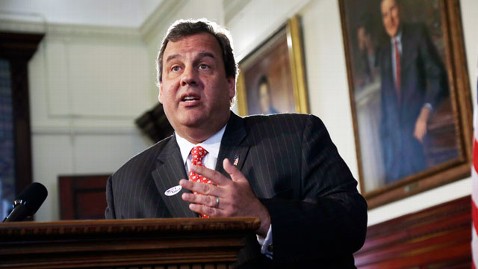Christie's Non-Political Play Plays Politics

Image credit: Mel Evans/AP Photo
ANALYSIS
By professing not to play politics, New Jersey Gov. Chris Christie chose a way to fill a vacant Senate seat that came with political benefit - and no shortage of political fallout.
First, the non-politics: the Republican governor is going forward with primary and general elections to fill the seat of the late Sen. Frank Lautenberg, D-N.J., as early as possible under state law.
That minimizes the amount of time an appointed successor will serve, and puts an elected senator in place to represent the state by October.
"There's no political purpose. The political purpose is to give the people a voice," Christie said in announcing his decision today.
But there is political impact. New Jersey will elect a new senator Oct. 16 - a mere 20 days before the state's gubernatorial election, in which Christie is the undisputed frontrunner for a second term.
Read more: Christie Likely to Announce Dates of Special Election
That means Christie's race will top the ballot Nov. 5, instead of a Senate race that could well feature Newark Mayor Cory Booker. The intense interest in the Senate race - in solidly blue New Jersey, in a race that could feature an African-American Democratic rising star - would have almost certainly siphoned votes from Christie.
So the way he has arranged the schedule, Christie will presumably be better suited to run up the score in advance of a potential 2016 presidential race.
And yet, in classic Christie fashion, he's managed to infuriate some on the right as well.
Competing state laws meant that Christie could have pushed to have his appointee serve all the way until November 2014.
That would have ensured Republicans - Christie has heavily hinted that he'll choose one - an additional vote for 17 months, as opposed to just five. It would also have given a possible head start for a Republican against Booker or whomever the Democrats nominated.
Christie said he doesn't care about the costs associated with his decision, but there will be one. The additional two elections - a primary and a general - will cost New Jersey taxpayers an estimated $25 million.
Adding the second general election alone will cost about $12 million. A Democratic group quickly compiled a list of other things that $12 million could buy: miles of boardwalk in rebuilding areas of New Jersey, half of the recent state cuts to medical services for the elderly, all the non-profit grants awarded by the Hurricane Sandy Relief Fund.
There will be lawsuits and assorted drama even as Christie picks an interim senator, and as campaigns gear up for a summer sprint.
Christie managed to not-quite satisfy anyone, while giving himself a bit of a boost along the way. He's stirred up a political tempest, with himself at the center, able to say he's simply siding with New Jersey voters.